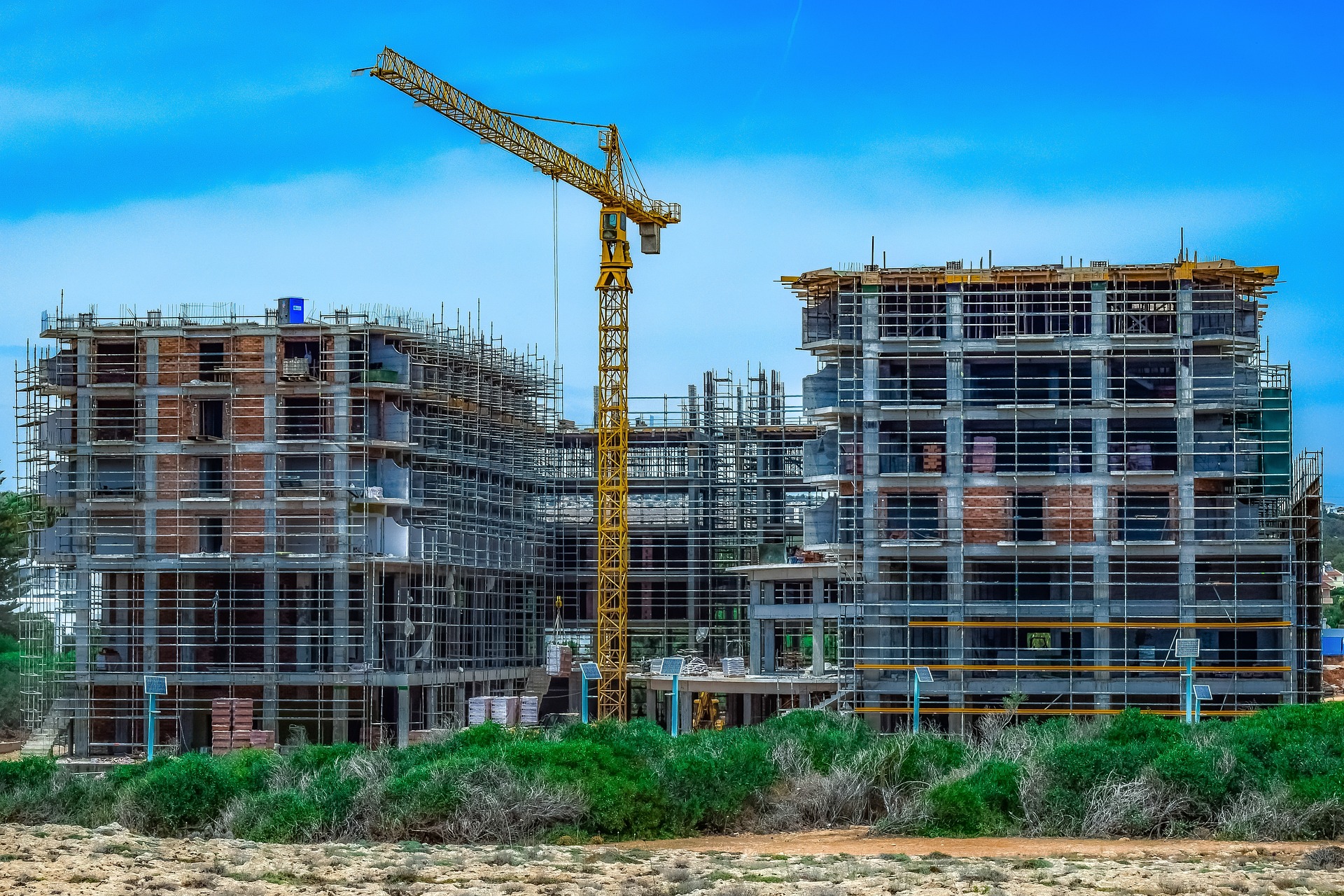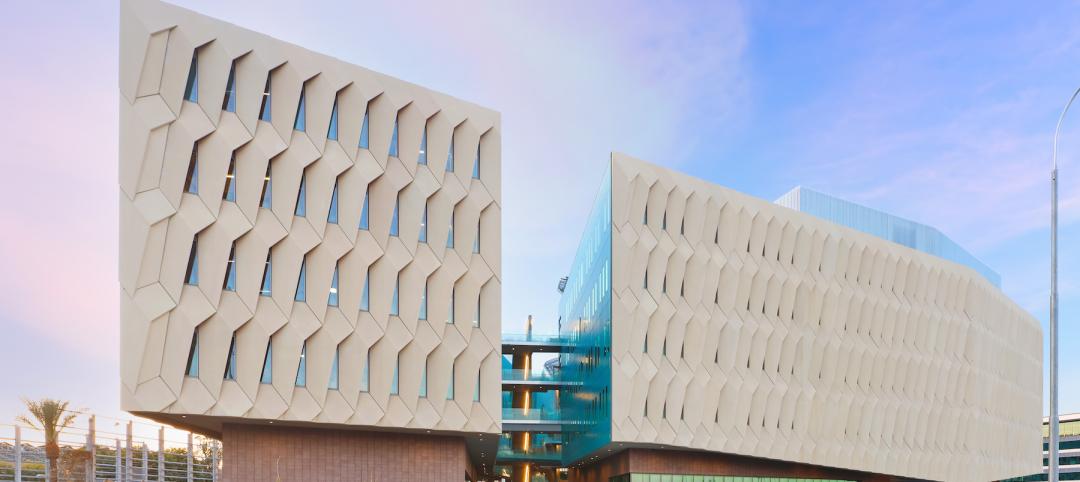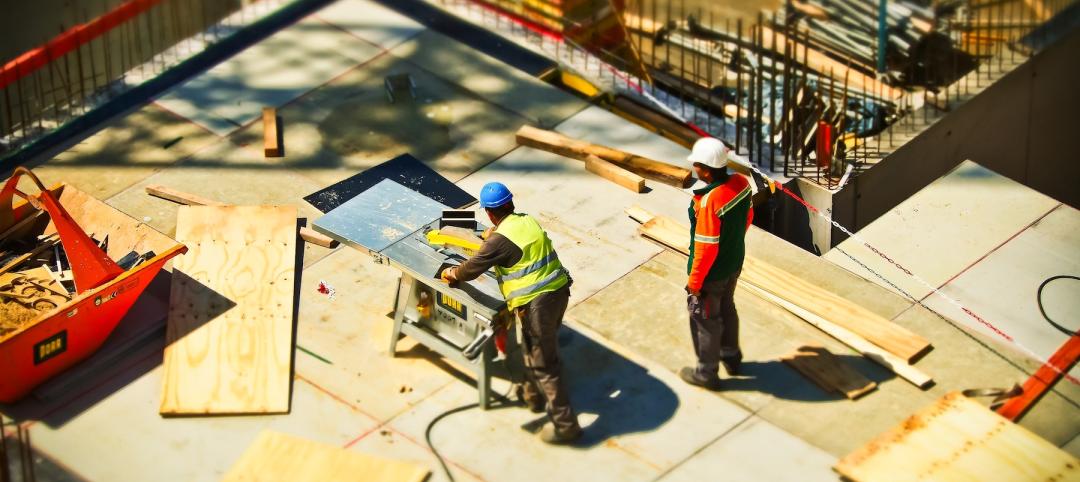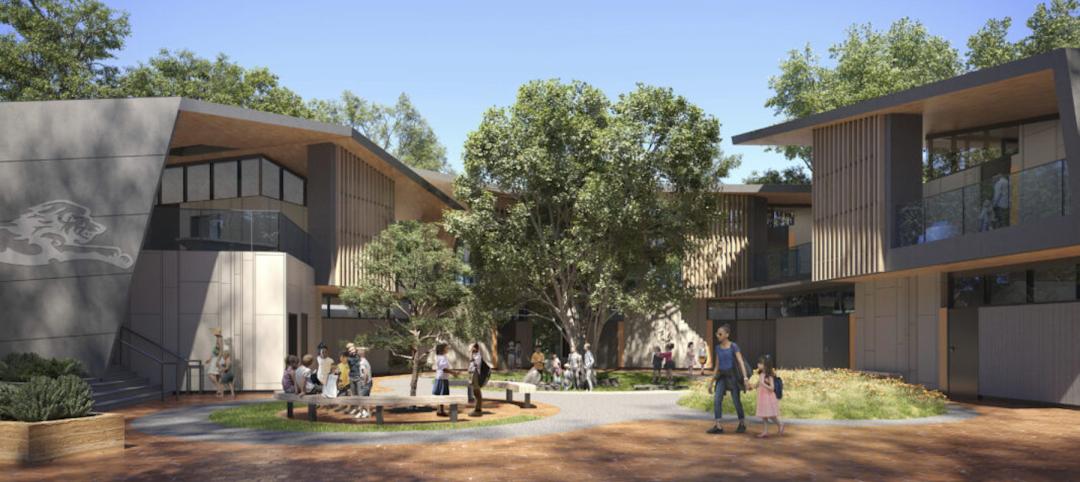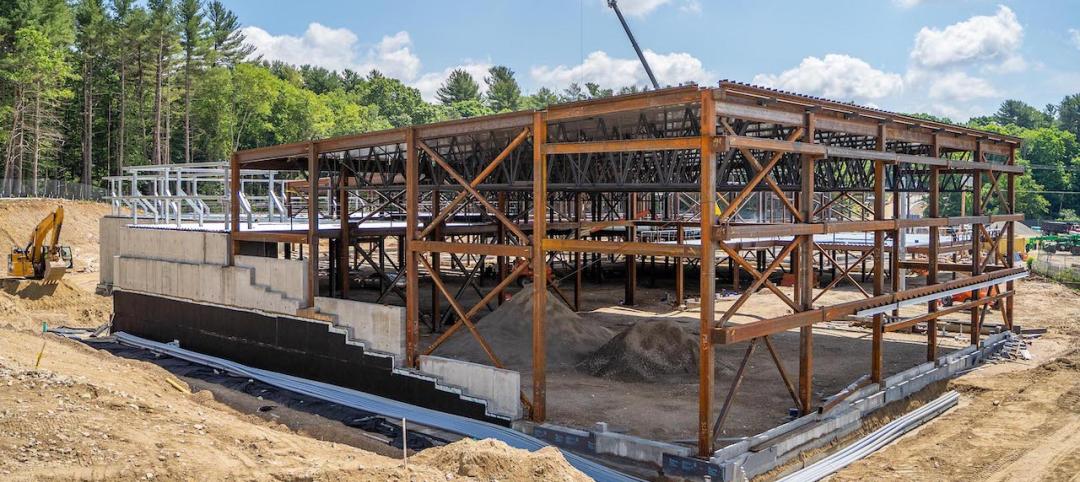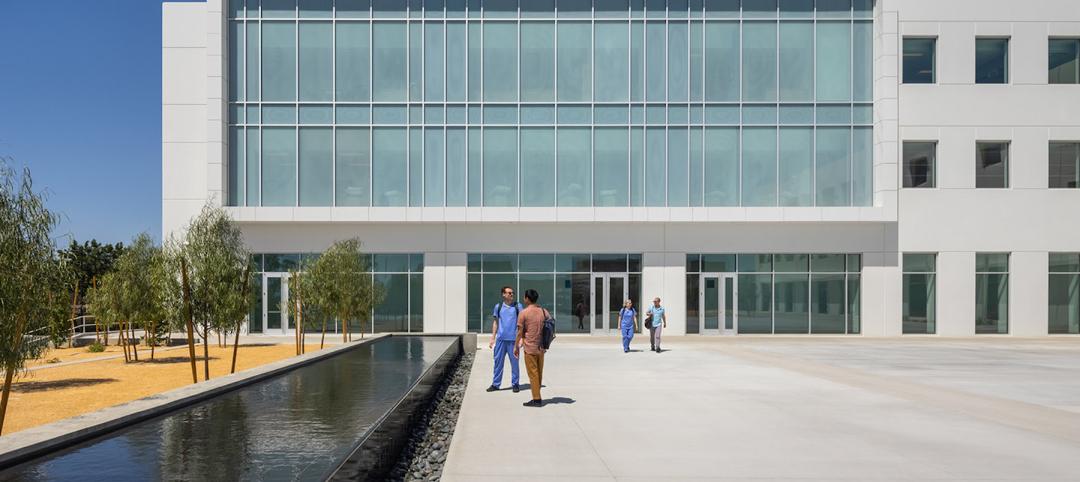Associated Builders and Contractors reported today that its Construction Backlog Indicator declined to 8.7 months in March, according to an ABC member survey conducted March 20 to April 3. The reading is 0.4 months higher than in March 2022.
View ABC’s Construction Backlog Indicator and Construction Confidence Index tables for March. View the historic Construction Backlog Indicator and Construction Confidence Index data series.
Backlog slipped in March and is now at its lowest level since August 2022. Backlog is down on a monthly basis in every region except for the South, which continues to be associated with elevated levels of current and future construction activity.
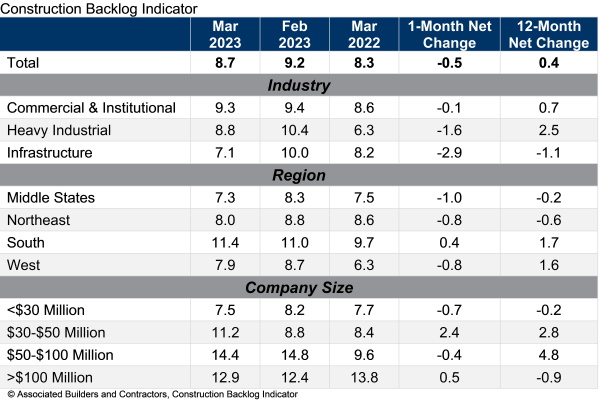
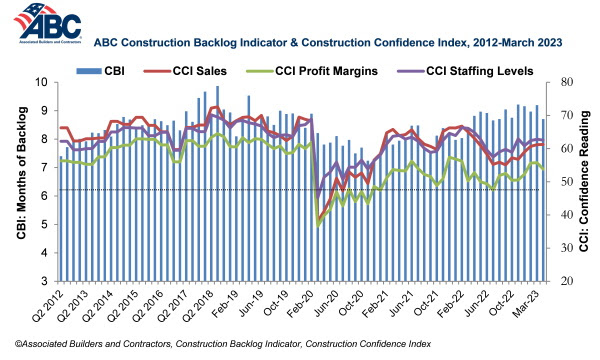
ABC’s Construction Confidence Index reading for sales inched higher in March, while the readings for profit margins and staffing levels fell. All three readings remain above the threshold of 50, indicating expectations of growth over the next six months.
“The deceleration in nonresidential construction activity may have started,” said ABC Chief Economist Anirban Basu. “With widespread fears of recession, credit conditions tightening and more decision-makers turning their attention to cost containment, new construction work may be more difficult for contractors to line up.
“While the confidence and backlog data weakened in March, they indicate a slowing of activity rather than a shift into reverse,” said Basu. “There is a widely held view that financial conditions are tightening in the aftermath of the failures of Silicon Valley Bank and Signature Bank. To the extent that this is true, one could anticipate further slowing and less industry confidence during the months ahead.”
Related Stories
Legislation | Aug 5, 2022
D.C. City Council moves to require net-zero construction by 2026
The Washington, D.C. City Council unanimously passed legislation that would require all new buildings and substantial renovations in D.C. to be net-zero construction by 2026.
Cultural Facilities | Aug 5, 2022
A time and a place: Telling American stories through architecture
As the United States enters the year 2026, it will commence celebrating a cycle of Sestercentennials, or 250th anniversaries, of historic and cultural events across the land.
Sponsored | | Aug 4, 2022
Brighter vistas: Next-gen tools drive sustainability toward net zero line
New technologies, innovations, and tools are opening doors for building teams interested in better and more socially responsible design.
| Aug 4, 2022
Newer materials for green, resilient building complicate insurance underwriting
Insurers can’t look to years of testing on emerging technology to assess risk.
Sustainability | Aug 4, 2022
To reduce disease and fight climate change, design buildings that breathe
Healthy air quality in buildings improves cognitive function and combats the spread of disease, but its implications for carbon reduction are perhaps the most important benefit.
Multifamily Housing | Aug 4, 2022
Faculty housing: A powerful recruitment tool for universities
Recruitment is a growing issue for employers located in areas with a diminishing inventory of affordable housing.
Multifamily Housing | Aug 3, 2022
7 tips for designing fitness studios in multifamily housing developments
Cortland’s Karl Smith, aka “Dr Fitness,” offers advice on how to design and operate new and renovated gyms in apartment communities.
Building Materials | Aug 3, 2022
Shawmut CEO Les Hiscoe on coping with a shaky supply chain in construction
BD+C's John Caulfield interviews Les Hiscoe, CEO of Shawmut Design and Construction, about how his firm keeps projects on schedule and budget in the face of shortages, delays, and price volatility.
Codes and Standards | Aug 3, 2022
Some climate models underestimate risk of future floods
Commonly used climate models may be significantly underestimating the risk of floods this century, according to a new study by Yale researchers.
| Aug 3, 2022
Designing learning environments to support the future of equitable health care
While the shortage of rural health care practitioners was a concern before the COVID-19 pandemic, the public health crisis has highlighted the importance of health equity in the United States and the desperate need for practitioners help meet the needs of patients in vulnerable rural communities.


